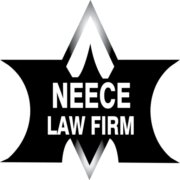Best Divorce & Separation Lawyers in North Carolina
Share your needs with us, get contacted by law firms.
Free. Takes 2 min.
Free Guide to Hiring a Family Lawyer
Or refine your search by selecting a city:
List of the best lawyers in North Carolina, United States
About Divorce & Separation Law in North Carolina, United States
Divorce and separation laws in North Carolina allow married couples to legally end their marriages and resolve important issues such as property division, alimony, child custody, and child support. North Carolina recognizes both divorce from bed and board (a form of legal separation) and absolute divorce, which is the official termination of marriage. The process is primarily governed by state statutes and the specifics of each case, making it essential for individuals to understand their rights and responsibilities. Separation is a requirement for divorce and generally means that spouses must live apart for at least one year before filing for an absolute divorce.
Why You May Need a Lawyer
Legal matters surrounding divorce and separation can be highly emotional and complex. There are many situations where professional legal assistance is beneficial. If you and your spouse disagree on property division, child custody, visitation, child support, or alimony, a lawyer can help protect your interests and ensure a fair outcome. Legal counsel is also essential when domestic violence, hidden assets, or complicated financial matters are involved. Even in seemingly straightforward cases, a lawyer can help with the correct preparation and filing of legal documents and ensure you comply with North Carolina law.
Local Laws Overview
North Carolina's divorce and separation laws have several unique features:
- North Carolina is a "no fault" divorce state, which means you do not have to prove marital misconduct to obtain an absolute divorce. Instead, you must demonstrate that you and your spouse have lived apart for at least one year with the intention for the separation to be permanent.
- Before a divorce is granted, issues of property division (equitable distribution), alimony, and child custody/support can be addressed through separate legal actions or agreements.
- Equitable distribution does not necessarily mean a 50-50 split. Courts consider a variety of factors to determine a fair division of assets and debts.
- Alimony may be awarded to a dependent spouse if there is a substantial difference in income or need, except in certain cases of marital misconduct.
- Child custody decisions are based on the best interests of the child and may result in joint or sole custody arrangements with specific visitation rights.
- North Carolina courts require that divorcing couples comply with mandatory waiting periods and residency requirements before filing.
Frequently Asked Questions
What are the grounds for divorce in North Carolina?
North Carolina only requires that spouses live separately and apart for at least one year with the intent for the separation to be permanent. Proof of fault, such as adultery or cruelty, is not necessary for absolute divorce.
What does "separation" mean in North Carolina?
Separation means living in different homes, not just separate bedrooms, with at least one spouse intending the separation to be permanent. Occasional visits for childcare or brief overnight stays for emergencies do not restart the separation period.
Do I need to be legally separated before I file for divorce?
Yes. One full year of separation is required before you can file for an absolute divorce in North Carolina.
How is property divided during divorce in North Carolina?
Property is divided through equitable distribution, which aims for a fair division based on factors such as the length of the marriage, contributions of each spouse, and economic circumstances. It does not always result in equal shares.
Who will get custody of the children?
Child custody is determined based on the best interests of the child, considering factors like the child's needs, safety, and the ability of each parent to provide care. Courts may award joint or sole custody.
What is the difference between an absolute divorce and divorce from bed and board?
Absolute divorce is the legal termination of marriage, whereas divorce from bed and board is a type of court-ordered legal separation without ending the marital status. Bed and board divorce is fault-based and less commonly used.
Can I receive or be required to pay alimony?
A dependent spouse may be awarded alimony if there is a significant income disparity and certain conditions are met. The amount and duration depend on factors including marital misconduct, financial needs, and the length of the marriage.
How is child support determined?
Child support is calculated using North Carolina's guidelines, which consider both parents' incomes, the number of children, and the custody arrangement. Deviations from the guidelines are possible in special circumstances.
Do I need a lawyer to file for divorce?
While you are not required to have a lawyer, legal representation can ensure that your rights are protected, paperwork is filed correctly, and important issues like property division and child custody are addressed.
What are the residency requirements for filing divorce?
At least one spouse must have lived in North Carolina for at least six months before filing for divorce in the state.
Additional Resources
If you need further guidance or assistance, these resources can be helpful:
- North Carolina Judicial Branch - Family Law Section
- North Carolina Bar Association - Public Legal Information
- Legal Aid of North Carolina
- North Carolina Child Support Enforcement
- Local county clerk of court offices
- Domestic Violence Shelters and Services in North Carolina
Next Steps
If you are considering divorce or separation in North Carolina, begin by collecting relevant information about your marriage, assets, debts, and any issues involving children. Consider speaking with a qualified family law attorney to assess your options, especially if your situation involves complex assets, contested custody, or concerns over safety and support. You can schedule a consultation with a lawyer or reach out to local legal aid organizations for initial advice. Ensure all court documents are filed properly and follow all required procedures to avoid unnecessary delays or complications.
Lawzana helps you find the best lawyers and law firms in North Carolina through a curated and pre-screened list of qualified legal professionals. Our platform offers rankings and detailed profiles of attorneys and law firms, allowing you to compare based on practice areas, including Divorce & Separation, experience, and client feedback.
Each profile includes a description of the firm's areas of practice, client reviews, team members and partners, year of establishment, spoken languages, office locations, contact information, social media presence, and any published articles or resources. Most firms on our platform speak English and are experienced in both local and international legal matters.
Get a quote from top-rated law firms in North Carolina, United States — quickly, securely, and without unnecessary hassle.
Disclaimer:
The information provided on this page is for general informational purposes only and does not constitute legal advice. While we strive to ensure the accuracy and relevance of the content, legal information may change over time, and interpretations of the law can vary. You should always consult with a qualified legal professional for advice specific to your situation.
We disclaim all liability for actions taken or not taken based on the content of this page. If you believe any information is incorrect or outdated, please contact us, and we will review and update it where appropriate.
Browse divorce & separation law firms by city in North Carolina
Refine your search by selecting a city.














